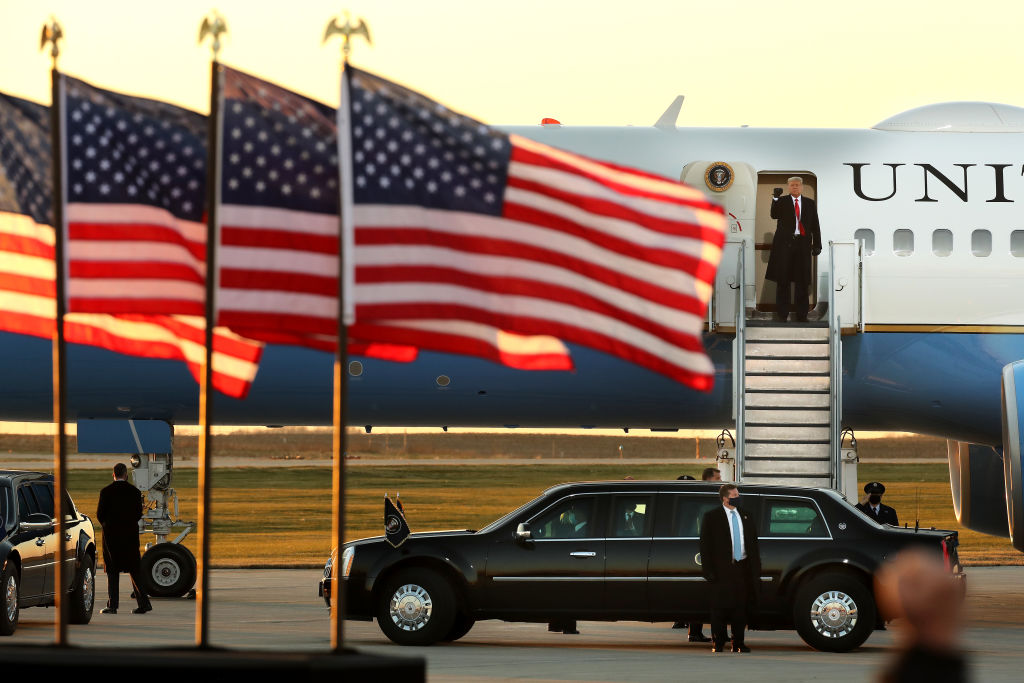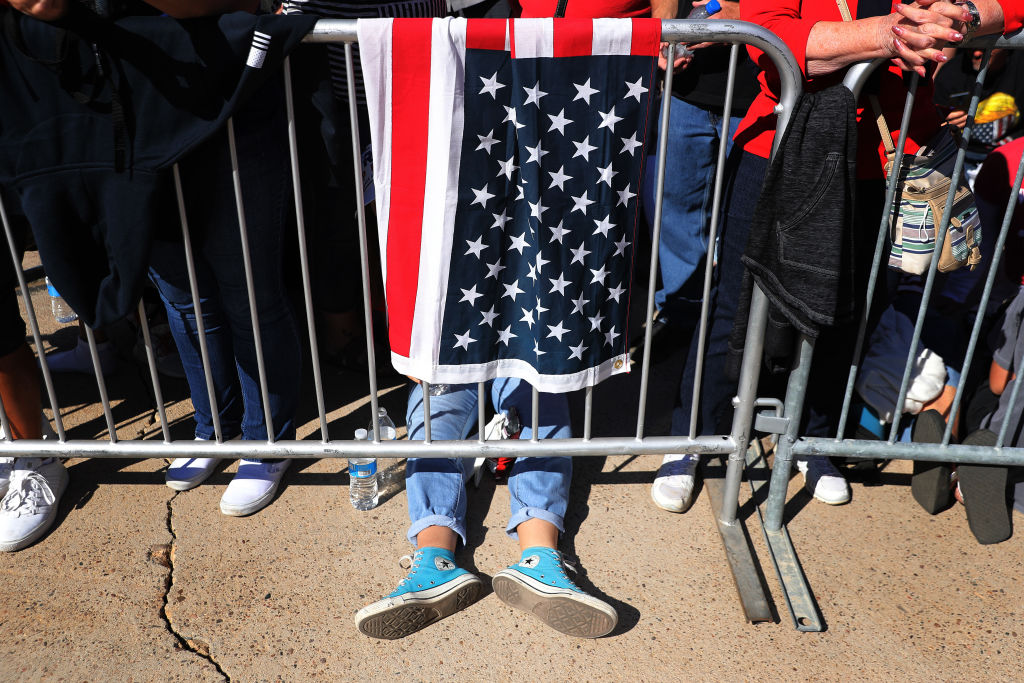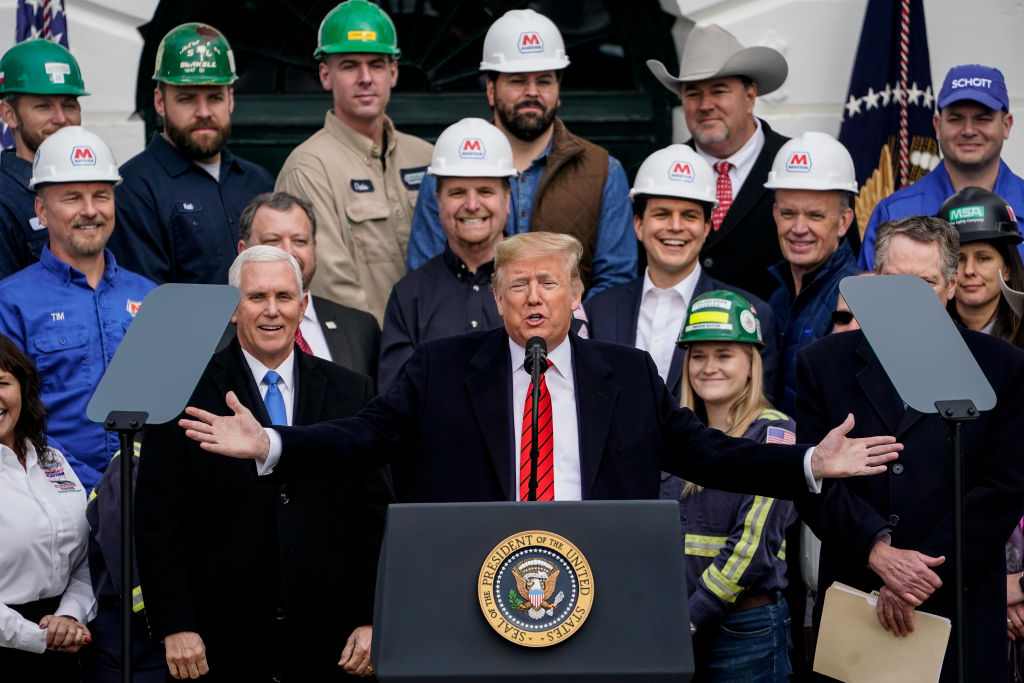The year began with Donald Trump touting the nation’s low unemployment rate and progressive firebrand Senator Bernie Sanders surging to Democratic frontrunner status after early victories in New Hampshire and Nevada. Flash forward one month, and – it’s another world entirely. A global pandemic has caused primaries in 10 states and territories to be postponed. A centrist, Joe Biden, hunkered down at his home in Delaware to avoid infection, is the presumptive nominee. Large segments of the nation’s economy have simply shut down.
Capital & Main took this moment to check in with Thea Lee, president of the Economic Policy Institute, a D.C.-think tank whose 45-person staff has been hard at work remotely trying to make sense of the economic tailspin caused by the coronavirus and to steer policymakers as they attempt to mitigate the damage.
This week, the normally gridlocked Congress voted to award one-time direct payments to many individuals, and expanded jobless benefits to gig workers, as well as assistance to small businesses and a generous $500 billion in loans to large corporations. The $2.2 trillion stimulus package was the third and, by many orders of magnitude, the largest relief bill that Congress has passed this month. Lee’s shop has been feeding advice to lawmakers all the while. “Sometimes it gets taken, and sometimes it doesn’t,” she says.
Just yesterday, it was reported that a record number of Americans – 3.3 million people – filed for unemployment insurance last week. “We’re all in uncharted territory. None of us have ever seen anything like this in our lifetimes,” Lee told me from her home.
This interview has been edited for length and clarity.
Capital & Main: Only a couple months ago the big story was the Democratic Primary, which had focused the country on the growing economic inequality in America. Is that discussion still relevant as we face down this pandemic and a recession that may already be here?
Thea Lee: The focus on equality is absolutely more relevant than ever. What this crisis has laid bare is the dysfunction and inequality of the U.S. economy and the policies that we’ve put in place not just recently, but over the last couple of decades.
Because of the tremendous growth and inequality over the last couple of decades, [low wage] workers have very few resources or wealth to cushion them in the case of the downturn.
They have very few labor protections on the job, whether it’s health and safety protections as they go to work, or whether it is income protections or collective bargaining protections.
Lawmakers are essentially having to rebuild our social safety net. They’re building the plane as it’s flying. We see other countries in Western Europe still struggling with the economic impact of this health crisis, but not having to start from essentially ground zero.
Capital & Main: Will any of these policy changes – like extending paid sick leave and unemployment insurance to workers – have staying power?
Lee: The big question for all of us is, will there be lessons learned that we can take into the future, into the political debate in November and next year? We didn’t just need an emergency economic and health response. We need structural change in the U.S. economy and labor market so that we are prepared the next time this happens, and likely there will be a next time.
Even Republicans and businesses are starting to see that it is insane to send sick people to work, to expect people on the lower side of the income spectrum to be able to just stay home when they’re experiencing symptoms without getting any pay, that doesn’t make any sense. And obviously, [we have] a broken healthcare system, so that many people do not have access to the care they need in a timely way without worrying about financial ruin, and that’s idiotic.
“Lawmakers are essentially having to rebuild our social safety net.”
Capital & Main: Do you think that the pandemic and this recession could actually worsen economic inequality in the US?
Lee: There’s absolutely a danger of that happening. In this third stimulus bill, $2 trillion, I think a lot of people fought hard to make sure the bill would take care of the most vulnerable in society. Yet, we still see there was a big chunk of the bill, about half a trillion dollars or so, in industry aid that still does not have enough conditionality around it and that’s supporting big businesses with way too few strings attached. But I think the jury’s still out.
Capital & Main: When you say too few strings attached to the aid to business, what are the consequences of that?
Lee: We can’t afford to give the money to companies that don’t need it, or that are going to hand it off to high paid executives, or to pad their stock dividends. This is an absolute economic crisis. It’s a devastating economic crisis, [and] to the extent that the federal government is stepping up and making aid available, as it should, that money needs to be well directed.
What’s going to fix the economy now is making sure that ordinary Americans have the purchasing power they need to rebuild their lives and not lose their homes, they’re not going into bankruptcy. When the all-clear is sounded, we need small businesses and workers and families to be able to pick up the pieces and start spending and start working again.
Capital & Main: With the election coming up there has been great political incentive right now to put together a stimulus bill that helps American households. What happens if the pain persists after this, as it likely will?
Lee: That’s a great question. EPI has been saying we need not just a stimulus that is well targeted and of a magnitude that can address the crisis. We also ought to be building in triggers and sustainability for that stimulus so that we don’t get beyond the election and have elected officials lose interest in keeping the economy going—because there’s a real danger of either a prolonged economic slowdown, which will hurt millions and millions of families, or even a second wave of recession.
“We can’t afford to give money to companies that are going to hand it off to high paid executives or pad their stock dividends.”
Capital & Main: What lessons from the last recessions should be applied here?
Lee: We don’t want to make the same mistake that was made in 2010, in 2011, which is withdrawing the stimulus too soon. We saw after the last Great Recession that it took really 10 years for median family income to recover. That’s too long. There’s no need for this recovery to take that long. Policy makers have it in their power to maintain needed stimulus until the economy is really healthy again.
The other [lesson], of course, is [establishing] precisely what are the conditions of the bailout. A lot of people ended up feeling burned after the rescue of the big banks, where people didn’t go to jail and they didn’t seem to have learned their lessons. There wasn’t enough accountability for the pretty massive amounts of taxpayer dollars that were spent. Some of that was paid back in terms of loans, but nevertheless, if taxpayers are going to invest in businesses to keep them afloat, to keep jobs there, then it is absolutely appropriate and essential that those investments be accompanied by stringent conditions.
Capital & Main: This recession, this economic crisis, who do you think is going to be most impacted?
Lee: You have people who just immediately lost their jobs, a lot of low and medium wage workers. On the other hand, you have a whole group of workers who are continuing to work but without adequate protections, without paid sick leave, without personal protective equipment.
Then you have a lot of professional folks whose incomes are not in jeopardy, who are able to work from home, like myself. But even those folks will face additional financial pressures. Obviously, people’s kids are home, people’s health care is at risk, and so on. But it’s a recession that will deepen and aggravate existing inequality.
Copyright Capital & Main





